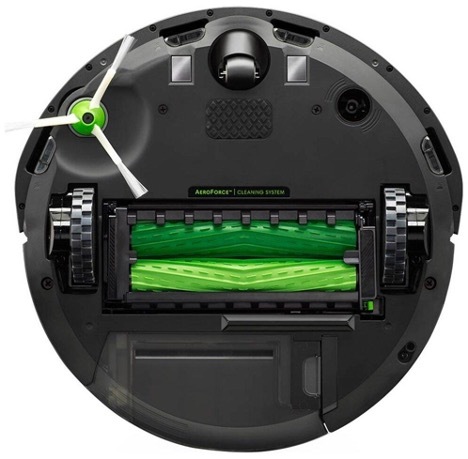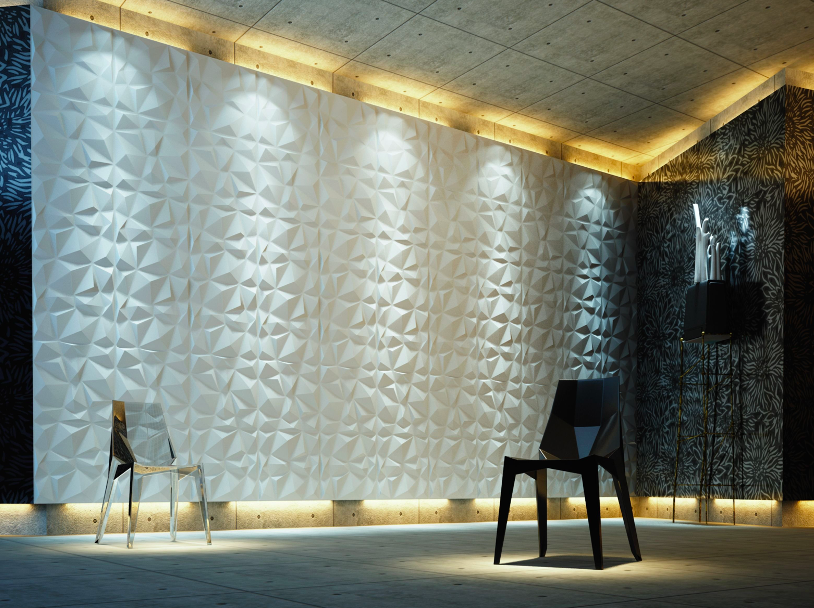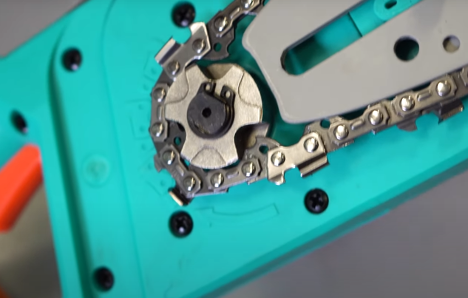There are no strict requirements for how to properly install a fireplace in a house. Electric models and biofireplaces can be placed in almost any room. As for a permanent brick structure, it is better to place it next to the outer wall, make a foundation and a chimney in advance. The purpose of such a structure and the technology of its construction are described below.
The content of the article
- Purpose of the fireplace
- Which fireplace to choose
- Installation instructions
Purpose of the fireplace
Before you figure out how to install a fireplace in your home, you should evaluate why it is needed and what type of device to choose. In general, we can say that this is a useful design, which, although not mandatory, performs several important functions:
- Aesthetic – the fireplace creates a cozy atmosphere and becomes a kind of center of attraction not only in the room, but throughout the entire house. It’s nice to spend an evening next to him, especially on weekends and holidays.
- Heating – you can install a fireplace in your home as an additional source of heating. This is especially true for large, spacious rooms where it is cold in the frosty winter. On the one hand, you can use a heater, but a fireplace is a more efficient and aesthetic solution.
- Another reason why you need a fireplace is to regulate the microclimate in the room. Thanks to the draft, there is a rapid exchange of flows with the street, and the air inside becomes drier, making there less chance of mold and rot.
- Cooking is a rather rare function that is implemented only in certain models. It can help out in case of a power outage for a long time.
- Finally, a fireplace is also a luxury item. You can use it to change the entire interior of the room, giving it an unusual look.
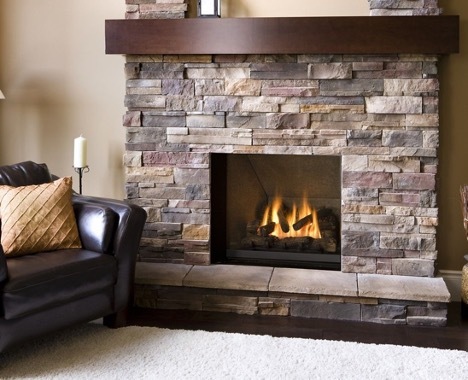
Which fireplace to choose
It is clear that the main option is permanent brickwork, which is best planned during the construction of the house. Although the structure can be built even after this, if you think through the chimney in advance and be sure to install your own foundation for the masonry. But you need to take into account that in the Russian winter, such a stove works practically in vain. Since the firebox is completely open, the efficiency does not even reach 20%.
In addition, masonry is quite difficult to complete and takes up a lot of space. Therefore, along with the classic design, it is recommended to consider other types of fireplaces:
- Electric is a simple and inexpensive model that can be installed even in an ordinary city apartment.
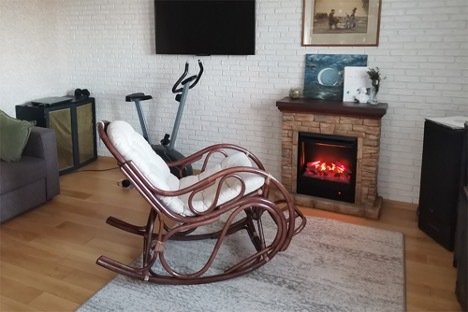
- False fireplace - you can make it yourself, for example, from plasterboard and even polystyrene foam. But you should not expect any warmth or characteristic crackling of firewood.
- Gas - suitable for houses with central gas supply; it can also operate from a cylinder, but this is more expensive.
- A biofireplace differs from electricity in that its flame is alive. At the same time, it is easy to connect to the network - this model is suitable for any premises.
The fireplace can be placed in any room with an area of 12 m2 or more with at least one window and door for periodic ventilation. There are no strict requirements for its placement, however, if you do brickwork, the area should be larger, and you need to place the bricks only on a pre-made small foundation.
Installation instructions
You can install the fireplace yourself. If it is an electric or gas model, you just need to place it on a flat surface and connect it to the network or to a gas pipeline. If you build a brick structure, the procedure is as follows:
- Make a small foundation for the base area, pour in the concrete mixture, level it and let it dry completely.
- While the foundation is being prepared, make a chimney. Its basis is a single-wall steel pipe; adapters, flanges, and 90-degree bends are used for turns.
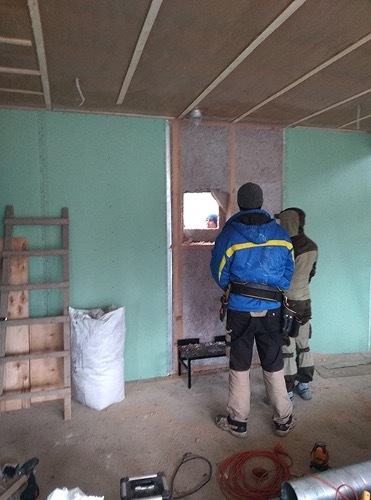
- A box is erected - essentially, the body of the fireplace. It can be decorated to look like stone or plastered and covered with fireproof plasterboard on top. It is attached to a frame made of metal profile.
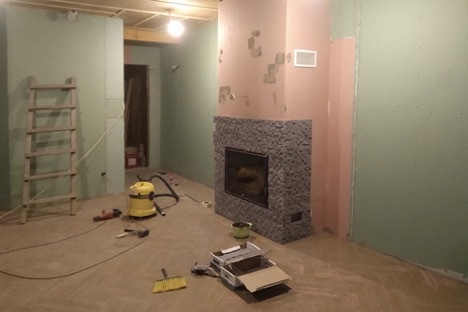
- The fireplace itself is made of bricks, calculating the masonry pattern in advance.

Usually the fireplace is placed along the outer wall so that the chimney is small and the draft is, accordingly, as efficient as possible. All joints are sealed, then the integrity of the structure is checked. To do this, light a little firewood so that it burns completely in an hour and watch to see if there is any smoke. This cycle is repeated for 2-3 days (once a day), after which you can begin full use.
